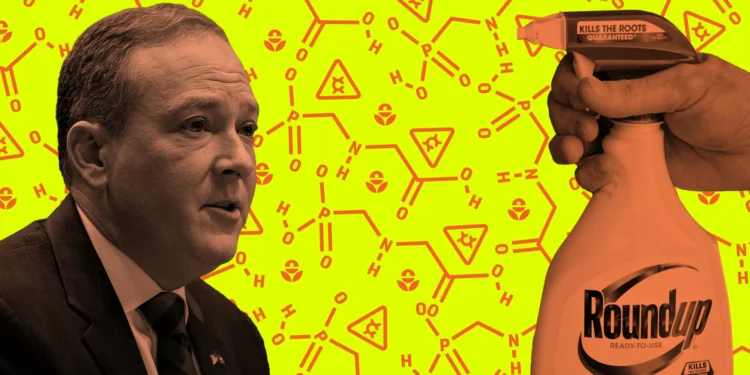The recent news of the corporation behind Roundup herbicide paying out nearly $11 billion in lawsuits has caused quite a stir in the agricultural industry. For years, Roundup has been a go-to herbicide for farmers and gardeners alike, touted as a safe and effective way to control weeds. However, the mounting evidence of its link to cancer has led to a wave of lawsuits against the company, resulting in a significant financial blow.
But now, it seems that the tide may be turning. The Environmental Protection Agency (EPA) under the Trump administration has proposed a new rule that would make it harder for individuals to sue for getting cancer from Roundup. This move has been met with both praise and criticism, with some seeing it as a necessary step to protect businesses and others viewing it as a dangerous disregard for public health.
The proposed rule, titled “Strengthening Transparency in Regulatory Science,” would require the EPA to only use studies with publicly available raw data when making regulatory decisions. This means that studies with confidential or proprietary information, such as those used in the Roundup lawsuits, would not be considered. The EPA argues that this will increase transparency and ensure that the agency’s decisions are based on sound science.
However, critics of the rule argue that it will limit the EPA’s ability to consider all available evidence, potentially putting public health at risk. They point to the fact that many studies on the link between Roundup and cancer have been conducted by independent researchers and not by the company itself. These studies may not have publicly available raw data, making them ineligible for consideration under the new rule.
The corporation behind Roundup, Monsanto, has been quick to support the EPA’s proposed rule. In a statement, the company said that the rule “will help ensure that the EPA’s regulatory decisions are based on legitimate and transparent science.” They also stated that the rule would “protect businesses from frivolous lawsuits based on flawed or incomplete data.”
But for those who have been affected by Roundup, this rule feels like a slap in the face. Many of the lawsuits against the company have been brought by individuals who have developed non-Hodgkin’s lymphoma after years of using Roundup. These individuals argue that the company knew about the potential risks of their product but failed to warn consumers.
One such individual is Dewayne Johnson, a former school groundskeeper who was awarded $289 million in damages after a jury found that Roundup was a substantial factor in his cancer. However, the award was later reduced to $78 million, and Monsanto is currently appealing the decision. Johnson’s lawyer, Timothy Litzenburg, called the EPA’s proposed rule “a gift to Monsanto” and stated that it would make it nearly impossible for individuals like Johnson to seek justice.
The EPA’s proposed rule has also sparked concern among environmental and public health groups. They argue that the rule would not only limit the EPA’s ability to consider all available evidence but also undermine the agency’s mission to protect public health and the environment. They fear that this rule is just one of many attempts by the Trump administration to weaken environmental regulations and cater to corporate interests.
In response to these concerns, the EPA has stated that the proposed rule is not intended to limit the agency’s ability to protect public health. They argue that the rule will actually increase transparency and ensure that the EPA’s decisions are based on the best available science. They also point out that the rule is still in the proposal stage and is open for public comment until May 18, 2020.
So, what does this all mean for the future of Roundup and its potential link to cancer? It’s hard to say for sure. The EPA’s proposed rule is just one piece of the puzzle, and it remains to be seen how it will be implemented and how it will affect ongoing lawsuits against the company. However, one thing is clear – the debate over Roundup’s safety is far from over.
In the meantime, it’s important for individuals to stay informed and make their voices heard. Whether you believe that Roundup is a safe and effective herbicide or a dangerous threat to public health, it’s crucial to stay engaged in the conversation and advocate for what you believe is right. Only through open and transparent dialogue can we ensure that the products we use are safe for both ourselves and the environment.






